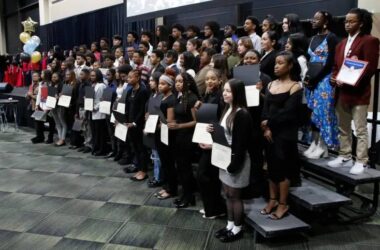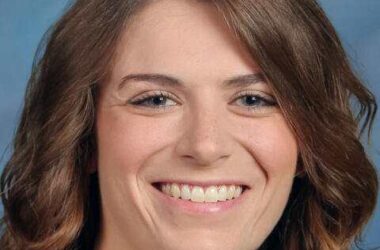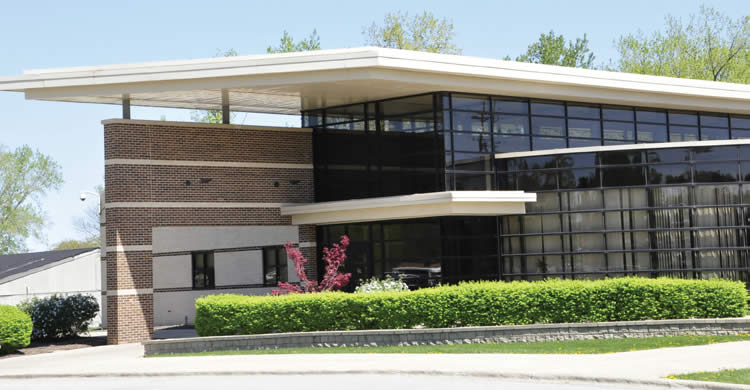CHICAGO–(ENEWSPF)–August 20, 2012. Students preparing to begin college this month should take care to exhaust every federal financial aid option available to them before turning to private student loans, U.S. Senator Dick Durbin (D-IL) said today while calling for passage of the Know Before You Owe Act of 2012, a bill he introduced earlier this year which would ensure students understand the full range of their available loan options before borrowing. Durbin noted that two-thirds of student loan borrowers were not aware of the difference between federal students loans and risky, higher-interest private students loans and that a majority of undergraduate students who take out private student loans do so even though they are eligible for safer, cheaper federal loans.
“Pursuing a higher education is part of the American Dream,” Durbin said at a news conference with graduates struggling with high private student loan debt. “Graduating saddled with debt is not. We face a looming student debt crisis in our country, and yet a majority of students who take out private student loans do so even though they are eligible for safer, cheaper federal loans. We need to ensure that every student understands the full range of options available to finance their education before signing on that dotted line.”
There are stark differences between private student loans and federal student loans. Federal student loans have fixed interest rates and offer an array of consumer protections and favorable terms, including deferment and forbearance in times of economic hardship, as well as manageable repayment options, such as the Income-Based Repayment and Public Service Loan Forgiveness programs. In contrast, private student loans, which resemble credit cards rather than financial aid, often have uncapped variable interest rates (which spiked as high as 18% in recent years), hefty origination fees, few, if any, consumer protections, and are ineligible for federal forgiveness, cancellation or repayment programs. According to the Consumer Bankers Association, private loans comprise sixteen percent of outstanding student loan debt and total $160 billion dollars.
Durbin was joined at the news conference by Sheila Uribe and her mother, Marilyn DeVries. Sheila graduated from Elmhurst College with $35,000 in private student loan debt, which quickly ballooned to around $60,000 due to high variable interest rates. Though she and her husband both work full-time and budget conservatively, Sheila says she feels “sentenced to life without parole” since she may never be able to repay her loans.
Durbin shared the story of Mirella Tovar, who graduated from Columbia College with a Bachelor of Arts in Graphic Design in 2006. Unaware of the federal loan options available to her, Mirella instead financed her education entirely through private loans. She graduated from Columbia with $90,000 in debt. With the subsequent accumulation of interest, Mirella now owes close to $100,000, has defaulted on one loan, and has entered into a six-month forbearance agreement with a lender. Had she understood the full range of federal options available to her, Mirella could have signed up for federal loans with stronger consumer protections.
In March Senator Durbin and Senator Tom Harkin (D-IA) introduced The Know Before You Owe Private Student Loan Act of 2012, which would require private student lenders to obtain a certification from a student’s school before issuing them a loan. Such a requirement would not impose an undue burden on lenders – Discover Financial Services, based in Riverwoods, Illinois, already voluntarily certifies all its student loans with a borrower’s school. The bill would also require colleges to counsel students before the sign on to expensive, even unnecessary, private student loans and inform them if they have any untapped federal loan eligibility. In some instances, student have not applied for federal aid before they apply for private student loans or have not exhausted their federal loan options.
“A little bit of education will go a long way towards helping young people save some money while still earning a valuable degree. College is expensive enough without taking on unnecessary debt,” Durbin said.
Specifically, the Know Before You Owe Act of 2012 would require private lenders to:
- Certify with the borrower’s school that the student is enrolled and the amount the student is eligible to borrow before issuing a private loan;
- Provide the borrower with quarterly updates on their loans, including accrued but unpaid interest and capitalized interest; and
- Report information to the Consumer Financial Protection Bureau about their student loans.
The bill would require institutions of higher education to:
- Inform students about their federal financial aid availability and eligibility; their ability to select a private lender of their choice; the impact of a private loan on their eligibility for other forms of financial aid; and their right to accept, reject or cancel a private loan as allowed under current law; and
- Inform students about the terms and conditions of federal and private student loans.
Senator Durbin has also introduced legislation to help college graduates struggling with overwhelming private student loan debt. In May, Durbin introduced the Fairness for Struggling Students Act, which would restore the availability of bankruptcy relief for private student loans, treating those loans like other forms of private debt such as credit card debt, rather than treating them as non-dischargeable along with child support payments, alimony and criminal fines. This targeted reform will not cause a rush to the bankruptcy courts, as the 2005 law created significant safeguards to prevent moral hazard and abuse by debtors of the bankruptcy system. However, the bill will make important relief available to students who are being crushed by overwhelming private student loan debt.
“Although the majority of outstanding debt is from federal student loans, private loans cause graduates the most hardship,” Durbin said. “Mountains of private loan debt are keeping many college graduates from secure middle-class lives, which in turn weighs down our economy. By allowing graduates to discharge these loans, we help them improve their lives and also give the American economy a boost.”
Last month, the Consumer Financial Protection Bureau released a report on private student loans which included policy recommendations that closely mirrored Senator Durbin’s bills. The CFPB recommended that private student loans be dischargeable in bankruptcy, that lenders be required to fully certify private student loans and that schools be required to determine if a student has exhausted his or her federal financial aid options.
For the past decade, private student loans have been the fastest growing and most profitable part of the student loan industry. According to the Consumer Financial Protection Bureau, outstanding student loan debt now exceeds $1 trillion– more than credit card debt. According to the Federal Reserve Bank of New York, around 37 million Americans held student loan debt last year with an average balance of $23,300. However, only 39 percent of those student loan borrowers were paying down their balances last year – 14 percent of student loan borrowers (5.4 million Americans) were delinquent on paying their loans, while the remaining 47 percent of borrowers were either in forbearance or were still in school and adding to their debt.
Source: durbin.senate.gov








